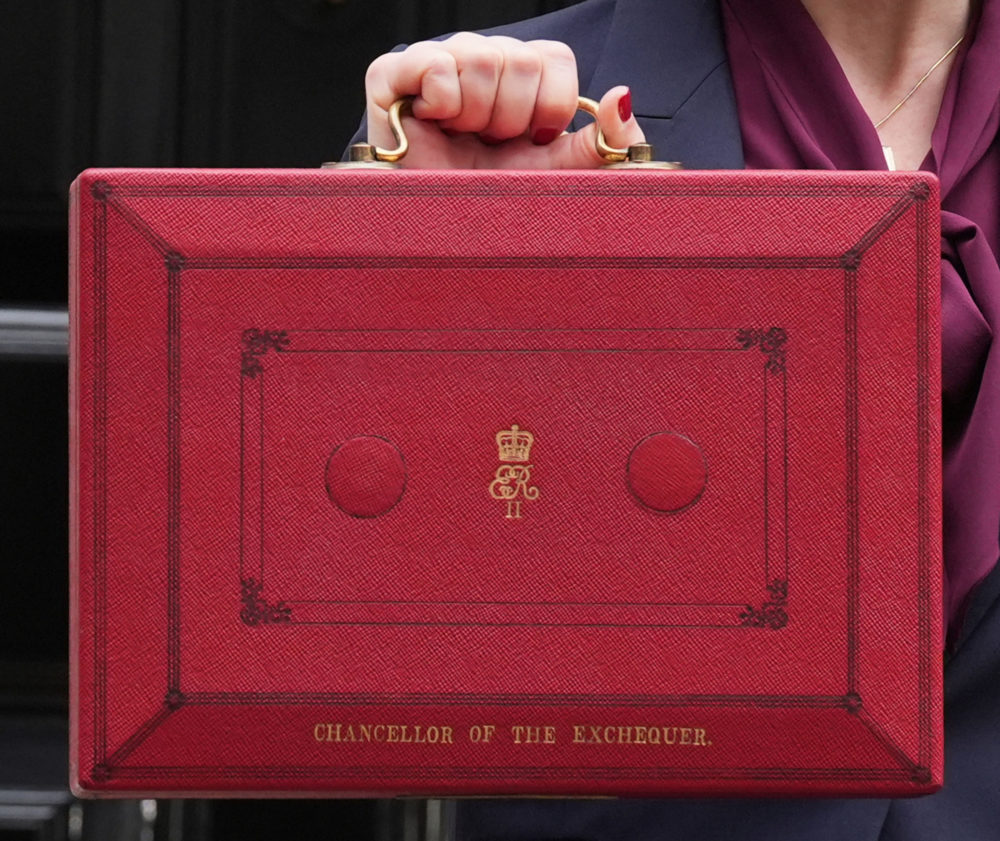Charities condemn ‘negative’ language as Reeves vows welfare fraud crackdown

The Chancellor has promised a “crackdown” on fraud in the welfare system but the Government’s plan to carry on with benefit reforms previously announced by the Conservatives to save £3 billon has been branded “bitterly disappointing”.
Rachel Reeves said she wants to ensure welfare spending is “more sustainable”.
Labour has previously said fraud and error in the social security system costs the Government almost £10 billion a year.
A report in July from the Department for Work and Pensions (DWP) said society’s attitude to fraud was “softening” with the effects being felt in the billion-pound benefits system.
The £266.1 billion welfare budget “is a deliberate target for both organised crime groups and opportunistic individuals”, the department’s annual report warned.
“Crackdown”
On Wednesday, the new Labour Government’s first Budget stated that its package of measures to tackle fraud would save £4.3 billion a year by the end of 2029-30.
Ms Reeves said: “I can today announce a crackdown on fraud in our welfare system often the work of criminal gangs.
“We will expand DWP’s counter-fraud teams using innovative new methods to prevent illegal activity and provide new legal powers to crack down on fraudsters, including direct access to bank accounts to recover debt.”
The Government also said it would set out reforms to health and disability benefits in the early part of next year “to ensure the system supports people who can work to remain in or start employment, in a way that is fair and fiscally sustainable”.
Ms Reeves told the Commons her party had “inherited the last government’s plans to reform the work capability assessment (WCA)” and pledged to “deliver those savings as part of fundamental reforms to the health and disability benefits system”.
Under Conservative proposals, welfare eligibility would have been tightened so that around 400,000 more people who are signed off long term would be assessed as needing to prepare for employment by 2028/29, reducing the benefits bill by an estimated £3 billion.
“Get Britain Working”
The Government’s £240 million “Get Britain Working package” had already been announced ahead of Budget day, with the Treasury saying it would include work, skills and health support for disabled people and long-term sick.
The Joseph Rowntree Foundation, a social change organisation, said the Government had “failed to explain how they will save £3 billion from the benefits bill” meaning those on welfare have been left with “no certainty and more anxiety rather than the respect they deserve”.
Disability charities including United Response, which supports people with learning disabilities, autistic people and those with mental health needs, accused Labour of carrying on a negative rhetoric on welfare.

Sapphire Beamish, its head of communications, said: “It is a poor decision to continue the rhetoric around tightening work capability assessments alongside a ‘crackdown on fraud’.
“The negative framing on welfare continues to inflict stigma and increase the worry for people with a learning disability who are left feeling let down that the focus is on saving money over supporting disabled people.”
James Taylor, executive director of strategy at disability equality charity Scope, welcomed investment in localised employment support for disabled people, but added: “Bringing in changes based on savings, not on supporting disabled people, will be disastrous.”
He added: “Ramping up restrictions won’t help support more disabled people into work, it will only make their lives harder”.
“In the dark”
With detail on the reforms not expected until 2025, he said “disabled people are yet again in the dark about the future of the benefits system, creating a huge amount of anxiety”.
Richard Kramer, chief executive of Sense, said the decision to go ahead with the previous government’s reforms was “deeply disturbing for disabled people” and “risks undermining the wellbeing of disabled people” with potentially “devastating” consequences.
Anti-poverty charity Z2K described the decision as “bitterly disappointing” as they expect disabled people living in poverty to “bear the brunt of these cuts”.
The charity said: “The government said it wants to restore trust between the DWP and disabled people. But by returning to the same old failed approach of cutting benefits, it is seriously endangering these efforts before they have even got started.”
“Out in the cold”
Older people in Wales have been left out in the cold after the UK Budget, according to Age Cymru.
A spokesperson shared: “We’re hugely disappointed by the Chancellor’s lack of mitigating measures or financial support for the thousands of older people in Wales who will no longer receive the Winter Fuel Payment.

“We will continue to campaign for more UK and Welsh Government financial support for those older people missing out and cannot afford to do so. We will also campaign to widen the benefits to be eligible for Winter Fuel Payments to include Housing Benefit, Council Tax Support, Attendance Allowance, Personal Independence Payment, and Carer’s Allowance.
“This expanded entitlement would still leave some of those who need the payment missing out, so UK Government should further explore how data matching could be used to identify people on low incomes and extend the Winter Fuel Payment to them automatically.
“We welcome the extra funding for the Household Support Fund and look forward to seeing how this translates in support for older people in Wales.”
Worry
Responding to today’s budget, Older People’s Commissioner for Wales, Rhian Bowen-Davies, shared many of the same concerns as Age Cymru, saying: “A number of announcements in today’s budget are to be welcomed, including increased investment in public services, and additional funding for the Welsh Government.
“However, it is disappointing that despite using the budget to raise an estimated £40bn, the Chancellor has decided not to reverse her decision to means test the Winter Fuel Payment, and did not announce any specific support to mitigate its impact.
“This decision will result in hundreds of thousands of older people missing out on crucial financial support, and many older people have told me they are hugely worried about the effect this will have on their health and well-being.
“In my view, the Chancellor has missed an opportunity to demonstrate she has listened to the concerns raised by older people and stakeholders, and, more importantly, to take action to ensure people do not miss out on the support they need.”
Increase
Also on Wednesday, the Work and Pensions Secretary Liz Kendall, in a written statement, confirmed benefit rates including universal credit would be increased by 1.7% from April across Great Britain, in line with the increase in the consumer prices index (CPI).
Chief Secretary to the Treasury Darren Jones also confirmed, in a written statement, that child benefit rates will rise across the UK from April, in line with CPI.
This will bring the rate for the eldest child to £26.05 per week, from £25.60, and for other children to £17.25 per week from £16.95.
Meanwhile, an increase to the Carer’s Allowance weekly earnings limit to the equivalent of 16 hours at the National Living Wage – described by Ms Reeves as the largest increase since the allowance was introduced in 1976 – has been welcomed by charities.
The new limit, meaning a carer can now earn more than £10,000 a year while receiving the allowance, will allow some 60,000 more carers access to the financial help, the Government said.
The Carers Trust said the move offers hope to many, and insisted it must be among “the first steps towards a desperately needed overhaul of this totally inadequate benefit”.
Support our Nation today
For the price of a cup of coffee a month you can help us create an independent, not-for-profit, national news service for the people of Wales, by the people of Wales.






For struggling pensioners many are now going to be much poorer. They are losing the winter fuel allowance and are having to pay income tax on a meagre state pension, one of the lowest in the developed world. In crippling pensioners financially the government policy does not include any recognition or payment for the massive contribution they make to the economy by providing free childcare. Many sectors would struggle or even collapse if it wasn’t for pensioners. Nurseries in Cardiff, for example, only open up to 6pm on weekdays while many parents work shiftwork, long days and/or weekends. Its about… Read more »
Reeves’ empty rhetoric makes the whole thing even worse. Successive governments have been clueless about benefit fraud so they take it out on the weak and defenceless instead. This pattern of behaviour looks set to continue. Rounding up real crooks and corporate/wealthy tax dodgers is so much harder and they can’t be bothered
Firstly let’s crackdown on fraud in Party Manifestos.